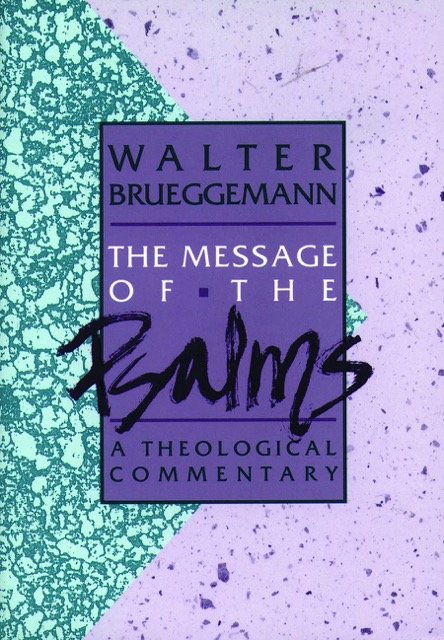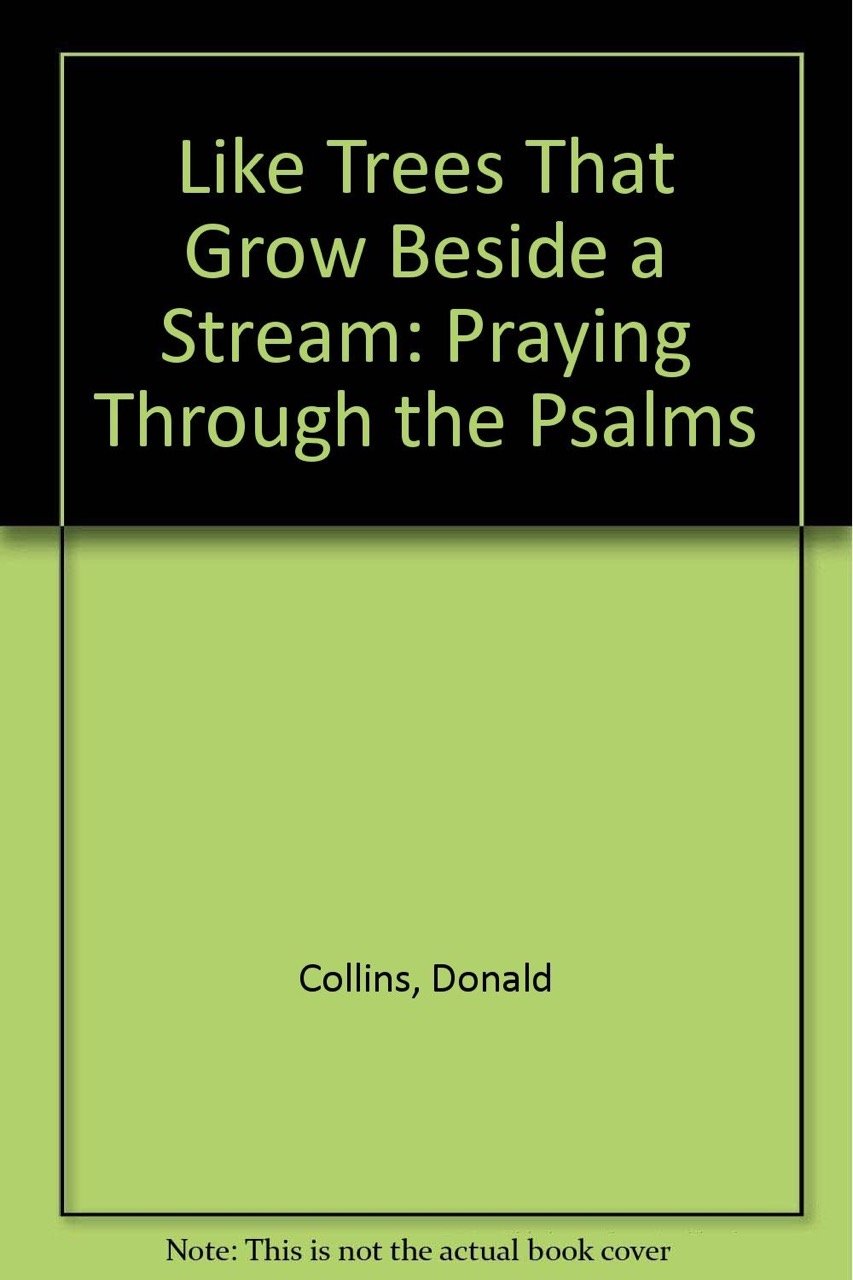The Psalms
If you hope to find any measure of wholeness in this life, superficial solutions will not do. Profound wholeness demands profound honesty, being honest with God and being honest with yourself. You must learn things about yourself that you rather not know. You must confess things that you’d rather leave unsaid. And this is not for the faint of heart. Those who’d rather stay in the dark or avoid the pain can easily find a million ways to do just that. But, for those who are longing for more or just tired of fixes that don’t really fix anything, God has given us a guide to lead us on this journey to healing and wholeness: the Psalms. In this series, we’ll dust off this ancient prayerbook and explore what happens when we begin to pray these brutally honest prayers.
Week 1: The Psalms: An (Unexpected) Guide to Life with God
If you ask Christians down through the ages: "How do I move forward in my walk with God?" They will say (over & over & over again): "The Psalms. You need to pray the Psalms." And this feels like a reasonable answer... until you start praying those Psalms about hating people or about the coronation of a king or the one about smashing the teeth of mine enemies. Yeah. Awkward. In this message, we're going to try to figure out what's going on in the Psalms... and why everyone down through the ages seems to think that if we want to move forward on our journey with God, then we really need to learn how to pray these prayers.
Week 2: Prayer Begins with Listening. Psalm 1
The editors of the Psalms knew how hard it is to pray. They felt it too. So, when we open up the Book of Psalms, we find that they don’t force us to jump right into prayer as though that’s an easy leap to make. Instead, they give us two Psalms to help us enter into prayer: Psalm 1 & 2. These two Psalms do not shy away from the difficulties we will face. It won't be easy. But it will be blessed. We might not be where we want to be. But God will meet us there too. This week, Psalm 1 gives us the secret to a prayer life that can flourish no matter what: prayer begins with listening.
Week 3: Surrender is Your Only Hope. Psalm 2
If you think that life is a problem that you can solve, you're in trouble. In Psalm 2, we're faced with the reality that if it's up to us to fix ourselves or save our world, we are hopeless. But we're not hopeless. It's not all up to us. The hope of God's people is that the God's King would do what we cannot do. In this Psalm, we explore how surrendering control of our lives is not a barrier to the life we want, but it is the way into life with God.
Week 4: Look Up. Psalm 8
In Psalm 8, David helps us get oriented to reality. If all you've ever known is the observable universe, this might be a bit hard to imagine. The universe David takes us into is much more vast. But he doesn't take us there to get lost. Rather that is the only place we can truly find ourselves. David guides us into this incomprehensibly vast "kingdom of God" so that we can find our place in the midst of it all.
Week 5: When You're Wrecked by the Love of God. Psalm 84
In Psalm 84, we stumble into a prayer that reads more like a juicy love letter than what we usually think of as prayer. These are the words of someone who has been wrecked by the love of God. He is sick with love. At times, he almost sounds insane. His voice cracks. He can hardly breathe. And, by praying this prayer, we learn to open up our hearts to more & more of His love.
Week 6: I Feel Seen. Psalm 139
Am I safe? Who am I? Who are you? Who am I to you? These are the questions that give our lives shape and meaning. This is where we begin to figure out what it means to be human. And yet, these are questions that you cannot answer on our own. Modern Psychology and ancient Hebrew wisdom agree: if you are ever going to answer these questions, you need Someone to know you. You need to feel seen. You need to experience Someone else experiencing you. In Psalm 139, King David invites us to experience the God who knows everything about you, who is always with you, who made you.
Week 7: What God Desires From You. Psalm 40
It's through hearing about what God has done in your life that others can begin to know the goodness of God. In Psalm 40, we find David standing at the Temple. He’s come to offer a thank offering to God, but, when he listens to God, he discovers that what God desires more than a sacrifice is for David to tell others what He has done for him. Then, many will see and fear and trust in the Lord.
Week 8: Waiting for the End of the Story. Psalm 13
This Sunday, professor, speaker, and author, Dr. Duffy Robbins, will introduce us to a Biblical way to lament what is wrong in our world and in us. Using Psalm 13 as a guide, Duffy will show us how to pray our laments and even write our own psalm of lament.
Week 9: Pull Me Out of the Wall. Psalm 130
How do I pray when I feel like I have ruined my relationship with God? Psalm 130 is the prayer of someone headed to a worship service. On the way, he realizes that his relationship with God is completely broken, and it's all all his fault. This Psalm shows you how to pray when you find yourself there: in depths of your own brokenness, stuck inside yourself, wrapped in pain, trapped, lost.
Week 10: Our Most Precious Hatred. Psalm 137
Profound wholeness demands profound honesty. The Psalms invite us to be brutally honest with God and with ourselves, drawing things out of us that we rather not think about.. much less pray. This week, we'll explore a horrifying, but helpful, psalm that invites us to trust God with "our most precious hatreds."
Week 11: How I Almost Lost My Faith. Psalm 73
Thousands have gathered for the worship concert. Asaph, one of the greatest singer-songwriters of all time, steps ups to the mic: "My name is Asaph... and this song… is about how I almost lost my faith.” That's how Psalm 73 begins. For thousands of years, believers have been using this psalm as a guide to praying our doubts.
Week 12: The Spiritual Practice of Remembering. Psalm 103
In Scriptures, we are commanded, urged, and warned to remember/do not forget... more than 100 times. The Psalms repeatedly teach us to "remember" in our prayers. One gets the sense that how we remember is critical. According to the Prophets and Apostles, remembering appears to be a spiritual practice that is essential to knowing God and ourselves more truly and more deeply. In Psalm 103, David leads us in how to coach your soul in this spiritual practice of remembering.
Sermon Resources
〰️
Sermon Resources 〰️
A Good Place to Start
Open and Unafraid: The Psalms as a Guide to Life, by W. David Taylor
Taylor gives us a good, readable book to help us see the value of the Psalms and begin letting them do their work in our lives. Also, this book is endorsed by Bono, so there's that. Devotional. Small Group Friendly. Readable. Bono-approved.
The Best Introduction to the Psalms
Answering God: The Psalms as Tools for Prayer, by Eugene Peterson
Peterson was a master of words and student of language and poetry. This makes him a particularly good guide to the Psalms. If I were to recommend one introduction to the Psalms, it would be this. Devotional. Scholarly insights without scholarly language.
The Best Scholarly Introduction to the Psalms
The Message of the Psalms, by Walter Bruggeman
If you are ready for a theological and exegetical deep-dive, Bruggeman is your man. For those willing to enter into this more technical work, he will reward you richly with powerful devotional and theological insights. Scholarly. Devotional.
The Best Guide to Praying the Psalms
Like Trees That Grow Beside a Stream: Praying Through the Psalms, by Donald Collins
If you are looking to learn how to pray through the Psalms, Collins is a sure guide. While it's out of print, you can still find it. Praying the Psalms. Practical. Daily.
The Best Guide for Praying Brutally Honest Prayers
God, I Have Issues: 50 Ways to Pray No Matter How You Feel, by Mark Thibodeaux
While this book is not based on the Psalms, it includes many Psalms and is Psalm-like in that it shows us how to pray everything. Prayers include: God, My family is driving me nuts; God, I'm in lust; and God, I'm a lazy procrastinator.
Classics from Well-Loved Authors
Psalms: the Prayer Book of the Bible, by Dietrich Bonhoeffer
Reflections on the Psalms, by C.S. Lewis







